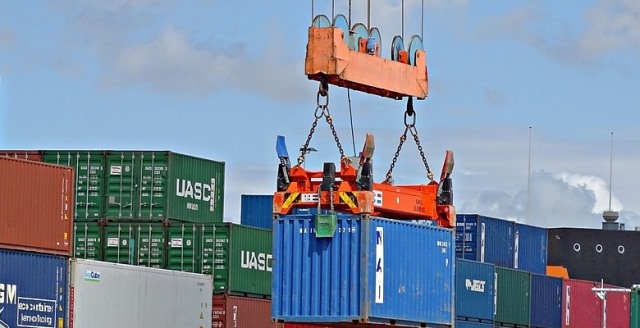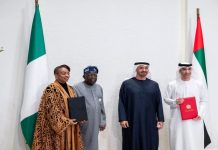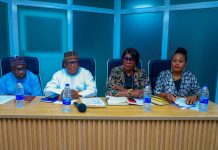The Executive Secretary, Nigerian Shippers Council (NSC), Bar. Hassan Bello has said about 90 percent of the cargo coming into Nigeria are under-declared at the Nigerian ports thus rubbing the country of billions of naira in revenue.
He also said the importers connive with certain government officials to undervalue their goods to rob the Federal Government of revenue.
Bar. Bello disclosed this during a courtesy visit to the acting chairman, Independent Corrupt Practices and other Related Offences Commission, (ICPC) Dr. Musa Usman Abubakar.
“90 percent of the goods coming into Nigeria are under-declared. There is massive connival to under-declare value of goods to pay lower duties. So government is losing a lot of money. There are so much leakages” he said.
He said to help curb this economic sabotage, the Council is introducing the cargo tracking note, a technology that will track all goods from their starting point till they reach their Nigerian ports.
He also said with the technology, “all the value of the cargo will be known and no one can conceal goods at the ports. There is no hiding place with this technology,” he assured.
He also said with the technology, the issue of illegal arms and dangerous goods will be tracked at the ports. “The amount of weapons and other illegal things coming in our seaport is alarming but with the advance tracking note, we can detect all the weapons,” he noted.
Also with electronic payment, there would be little human interface as this will reduce corruption at the ports, he assured.
He said corruption at the Nigerian ports is robbing the nation of the huge economic potentials at the ports adding that with proper reforms, the ports can fund Nigeria’s budget.
“Once we reduce corruption at the ports, the impact will mean that more goods will come through our ports because we are in competition with goods in Cotonou and other neighboring ports,” he said. He added that people don’t divert goods to neighbouring ports but they prefer those ports because they are less corrupt and more efficient.
“If we streamline the ports and the transport sector, the transport sector can finance the budget of this country. There is no need to depend on oil. There is so much wealth, creativity and productivity in the port. All we need do is to release it from the clutches of corruption and we hope the ICPC will take this serious and partner with us to rid the ports of corruption,” he said.
He also called for sustained collaboration with ICPC to enforce best practices at the ports. “About two years again, the vice president launched the port support portal. Even though a lot of CEOs have signed in, we still need some sanctions and we need enforcements. There is still complacency in adhering to the standard operating procedures,” he noted.
Dr. Musa Usman Abubakar, the acting chairman of the anti-graft agency, welcomed more collaboration with the Shippers’ Council and promised to address the identified lapses in ports operations going forward.
“I am happy that our previous collaboration has yielded positive result. We will continue to collaborate. We had discovered some lapses in the ports and have suggested ways to avoiding them. But as time goes on, people will still create ways to benefit from the system so it is necessary to resuscitate that collaboration,” he said.












